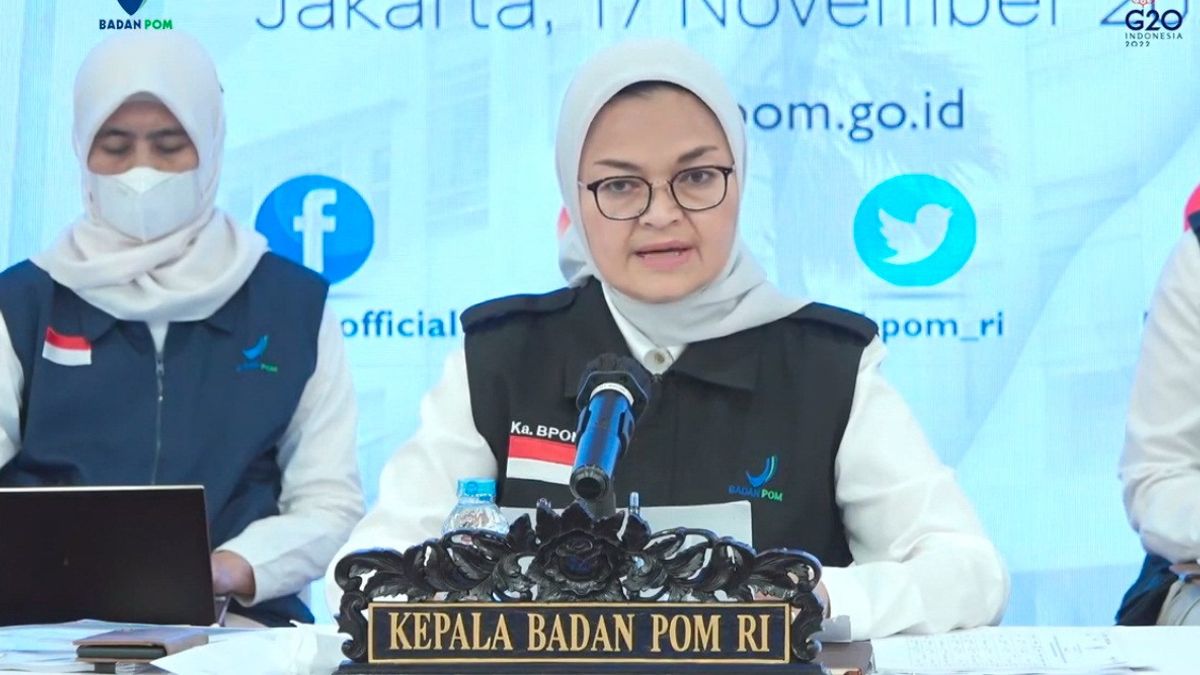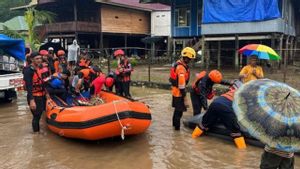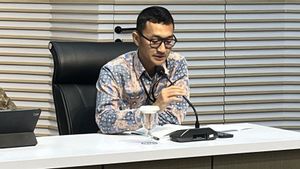JAKARTA In carrying out supervision, especially medicines, the Food and Drug Supervisory Agency (BPOM) so far still has limitations. For example, in the income of raw materials for soluting ethylene glycol (EG) and dietilen glycol (DEG) drugs.
The process, according to the Head of BPOM Penny K Lukito, has not been categorized as a limited prohibition. The raw material for drugs is included through the Ministry of Trade, so that its use cannot be monitored by BPOM. Penny said that the raw material forEE medicine entered from abroad in general. Whereas additional raw materials in the drug production process should be included in the phharmaceutical grade range.
"This is not through the POM, but through the Ministry of Trade-non prohibition and restrictions. So it is not through an import certificate from the POM," said Penny during a working meeting with Commission IX of the House of Representatives on November 2.
Likewise, related to the provisions of the EG and DEG contamination boundaries in finished medicinal products that are not stated in Indonesian and international Farmakope. BPOM does not have a legal umbrella for this supervision.
The Ministry of Health, according to Penny, must immediately take joint steps so that cases of acute kidney disorders in children known to be due to EG and DEG contamination in drugs do not happen again.
"In monitoring drugs in circulation, we have identified a gap in the drug safety and quality guarantee system from upstream to downstream. This is currently being discussed with relevant ministries and institutions. Later, there will be a number of changes," said Penny in a virtual press conference, Thursday (17/11).
Including the condition of the diversity of the pharmaceutical industry which must be used as the basis for determining policies that have an impact on the wider community and the economy, scarcity of medicinal raw materials and price differences between pharmaceutical graded solvents and chemical graded in certain periods.
Also, the Drug Samping Effect Monitoring (MESO) reporting system is not used by health workers and there is no deterrent effect for people who commit fraud in producing drugs and food.
These mistakes are often used by criminals. So, we feel the need to build independence regarding these things," said Penny.
As in today's case. Five pharmaceutical industries, namely PT Yarindo Farmatama, PT Universal Pharmaceutical Industries, PT Afi Farma, PT Samco Farma, PT Ciubros Farma have committed a criminal act of producingANGous drugs containing EG/DEG contamination above the threshold. Also, CV Samudra Chemical as a distributor of chemicals that make counterfeiting/coupling of glycol propylene.
We are handling investigations and investigations into 4 pharmaceutical industrial facilities. Yarindo and UPI have been named suspects and are still under investigation status. Ciubros is still in the process of investigating and examining witnesses and experts. Meanwhile, Samco is still investigating and deepening information," Penny explained.
Investigation of 2 other facilities, namely Afi Farma and CV Samudra Chemical, has been in the joint process between BPOM and Bareskrim Polri. Apart from the Police, we are also working with the Attorney General's Office to support the smooth process of prosecution and law enforcement so that it can provide a deterrent effect for criminals," he continued.
Related to that, BPOM also asks the pharmaceutical industry to always enforce the drug quality safety system consistently. Committed to:
"We continue to process tracing and following up on the incidence of EG/DEG contamination on drugAMps to the root of the problem. Not only as an effort to protect public health, but this is also an effort to improve the drug safety and quality guarantee system in Indonesia," said Penny.
On this occasion, BPOM also announced an additional 168 sirop medicinal products that do not contain solvents in the Propilen Glikol, Poliethylene Glikol, Sorbitol, and Gliserrin/Gliserol which cause EG/DEG contamination and are safe to circulate.
"It is also consumed as long as it is in accordance with the rules of use," said Penny emphasized.
The English, Chinese, Japanese, Arabic, and French versions are automatically generated by the AI. So there may still be inaccuracies in translating, please always see Indonesian as our main language. (system supported by DigitalSiber.id)









